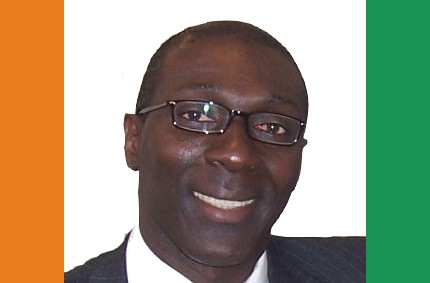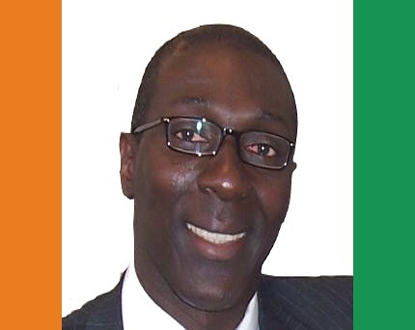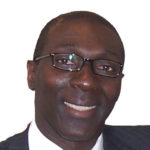Our “African” international politics expert updates us on the post-election situation in Côte d’Ivoire. In one of our previous columns, titled “What is the purpose of this latest African mediation in the Ivorian post-electoral crisis?”, we questioned its relevance.
 After several mediations and numerous official and secret negotiations to find a diplomatic and peaceful resolution to the chaotic situation in Côte d’Ivoire, all indicators point to the predictable failure of this panel of heads of state in Abidjan. Even before the official publication of the report from this latest mediation, it is already known that it will be a failure.
After several mediations and numerous official and secret negotiations to find a diplomatic and peaceful resolution to the chaotic situation in Côte d’Ivoire, all indicators point to the predictable failure of this panel of heads of state in Abidjan. Even before the official publication of the report from this latest mediation, it is already known that it will be a failure.
According to several converging sources, including the French newspaper Le Figaro dated February 23, these heads of state are expected to propose either a power-sharing arrangement through “a rotating presidency” or “a rerun of the Ivorian election.” What analyses can be made of these two possibilities?
A rotating presidency as a crisis resolution
This proposal is completely unrealistic and even absurd. It is not based on any legal or constitutional grounds. It demonstrates the impotence and inability of the African Union to assert itself as a credible reference institution on the continent. This proposal is legally inapplicable because it implies that there are two presidents elected by universal suffrage following the Ivorian presidential election. This is not the case, as the international community recognizes only Mr. Ouattara as the elected president of Côte d’Ivoire. Following discussions concerning the Ivorian post-electoral crisis at the recent African Union summit, the commission president, Mr. Jean Ping, stated regarding this mediation, “the aim is to enable Alassane Ouattara to wield actual power through negotiation.”
We are therefore very far from the objective set by the African commission. Why is this proposal unrealistic and even dangerous for democracy? For several reasons:
1 – Suppose the African Union proposes a presidency of two and a half years for each. This position is untenable at all levels. Who would start this “charade,” and what guarantees do Ivorians have of not living through the same crisis again, with a refusal to relinquish power after two and a half years? What are the coercive powers and sanctions of the African Union? Nothing.
2 – Politically, it is hard to see how governance could function with short or medium-term objectives. Strategic administrative appointments made by the first would be automatically undone by the next, creating political instability. We know how political actors, particularly Africans, align themselves according to their immediate interests. How will they position themselves or shift allegiance from one to the other? What role could the Parliament play in a presidential regime that fosters dictatorships in Africa? A parliamentary or semi-presidential regime with real parliamentary oversight powers would limit any tendencies towards autocracy and lifetime presidencies.
3 – On the diplomatic level, again, we risk witnessing a real “circus” with ambassadorial changes, notably in strategically significant countries or institutions like France, Belgium, the USA, the UN, the EU, or even the African Union.
4 – Economically and socially, this scenario risks being catastrophic. Given the current economic and social state of the country, the efforts initiated by the first would benefit the second in their achievements.
5 – How will different foreign economic and political partners of both sides position themselves in relation to the successor? Ultimately, this scenario would be an admission of impotence and a disqualification of the African Union.
The rerun of presidential elections
This solution has been proposed many times by various negotiators and mediators. It has always been rejected by the outgoing president, who demands a recount of the ballots, which are safe and sound at the Constitutional Council. Objectively, Gbagbo’s proposal is a “blatant” trap that can be spotted from thousands of kilometers away. This potential proposal by the African Union seems to be the most viable and objective to find a peaceful resolution to this crisis, which nonetheless appears to be fueled and maintained by powers defending their own geopolitical, economic, and strategic positioning. However, it raises some concrete questions. Who will fund this new election, knowing that the entire Ivorian electoral process cost the international community over three hundred million dollars? It is, to date, the most expensive election in the world. Who will supervise and certify it? The African Union? ECOWAS? The Ivorian Constitutional Council? The UN? Which authority will be empowered to ensure the electoral process? A new Electoral Commission? On what basis? Who will be authorized to proclaim the results? And who will be the observers, if any?
But the greatest unknown would be when it will take place. It took five years of bitter negotiations, battles of nerves, bad faith, and intense pressure to achieve this electoral process based on the Pretoria accords. If we have to wait that long again to redo this election, suffice it to say that we will be plunging into the depths of hell, with an elected and recognized president holding the country’s finances and an outgoing president holding part of the armed forces.
The battle for positioning in a country already on its last legs
This systemic Ivorian crisis clearly illustrates how each internal and external actor tries to impose constraints and zones of uncertainty on others to secure their positioning and interests. This is evidenced by the confrontation between Nigeria and South Africa in seeking a solution to the Ivorian crisis. These two heavyweights of sub-Saharan Africa have diametrically opposed positions.
Nigeria supports swift armed intervention to oust Gbagbo, recognized as defeated and refusing to submit to the electoral verdict. South Africa does not want to hear about Gbagbo’s “departure” and accuses France and the United States of wanting “his head.” How to understand this positioning confrontation concerning a country that may one day be a real obstacle in their leadership strategies or competitor given its economic potential. South Africa, already managing significant gold mines in Côte d’Ivoire, has just joined the very exclusive G20 circle and the so-called “emerging” countries club known as BRICS (Brazil, Russia, India, China, and South Africa). These positions make South Africa an indispensable and envied actor on the continent. Nigeria, as the foremost power of ECOWAS, has every interest in positioning itself as a principal actor in the sub-region and in the Ivorian crisis. Nigeria’s problem is that ECOWAS has not been able to resolve this crisis quickly enough. It has not been strongly supported in its positions by countries like Ghana, a country in full economic prosperity that has every interest in seeing Côte d’Ivoire sink into chaos.
Time has thus played in favor of the African Union and Nigeria’s main competitor, South Africa. In this “tug-of-war” between these two “giants,” the other BRICS actors must not be neglected.
For example, Russia, which has always dragged its feet to vote against Gbagbo and his clan in UN Security Council resolutions. According to a paper published in the French newspaper Le Point, Russian President Dmitry Medvedev and Prime Minister Vladimir Putin “are shareholders of GUNVOR, the Russian company involved in offshore oil exploitation of the Espoir field in Côte d’Ivoire and pay for black gold in advance.” Therefore, they have no interest in seeing their advantages renegotiated or disappear. China, India, and Brazil, currently lying in wait behind the United States, watch South Africa, this new member of their very exclusive club, with curiosity. But for how long? According to the media Les Afriques.com, in its issue 149, there are significant financial relations between Gbagbo’s regime and the “Franco-Lebanese cartel” in Côte d’Ivoire, representing another significant force of interests not to be overlooked. With all these geopolitical uncertainties and strategic positioning maneuvers in a country that has been in decline for over 10 years, the resolution of the crisis appears complex and risky.
If the elected and recognized president truly wants to exercise power, it is his responsibility to take action. The solutions to this mediation are already known. It’s as if democracy is antagonistic to particular interests, as some speakers said at the last Davos summit in Switzerland a few months ago, according to the Swiss newspaper La Tribune de Genève.



